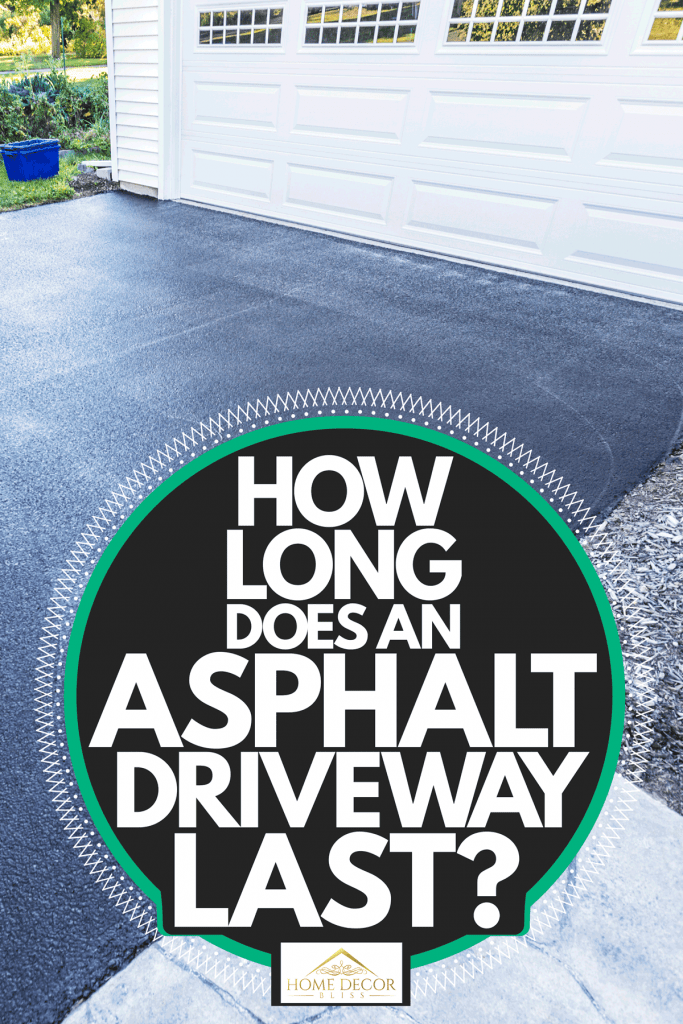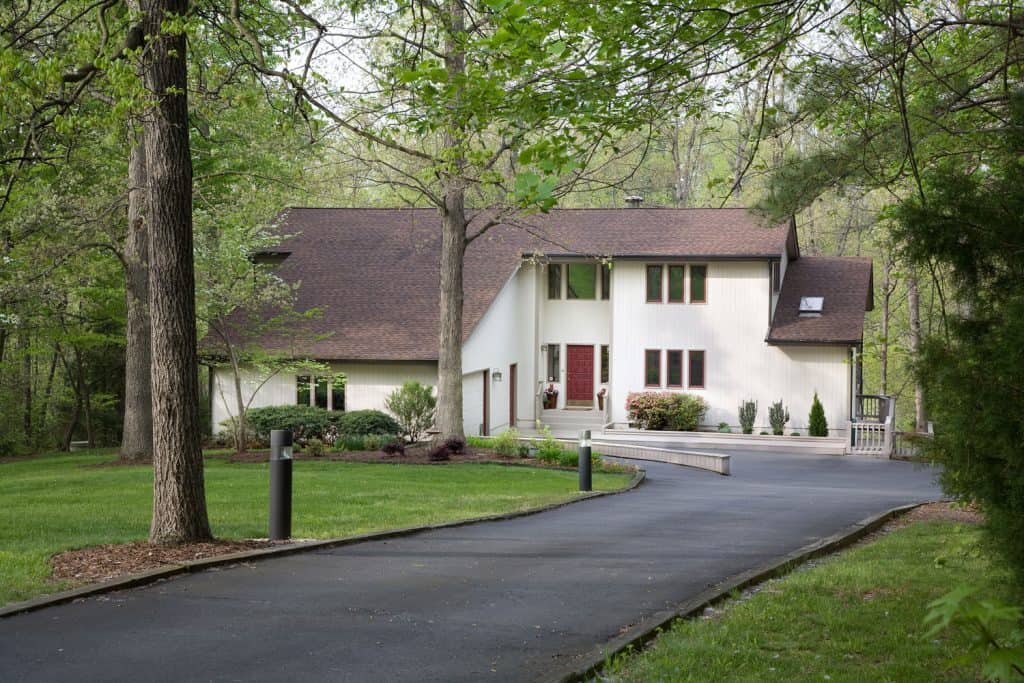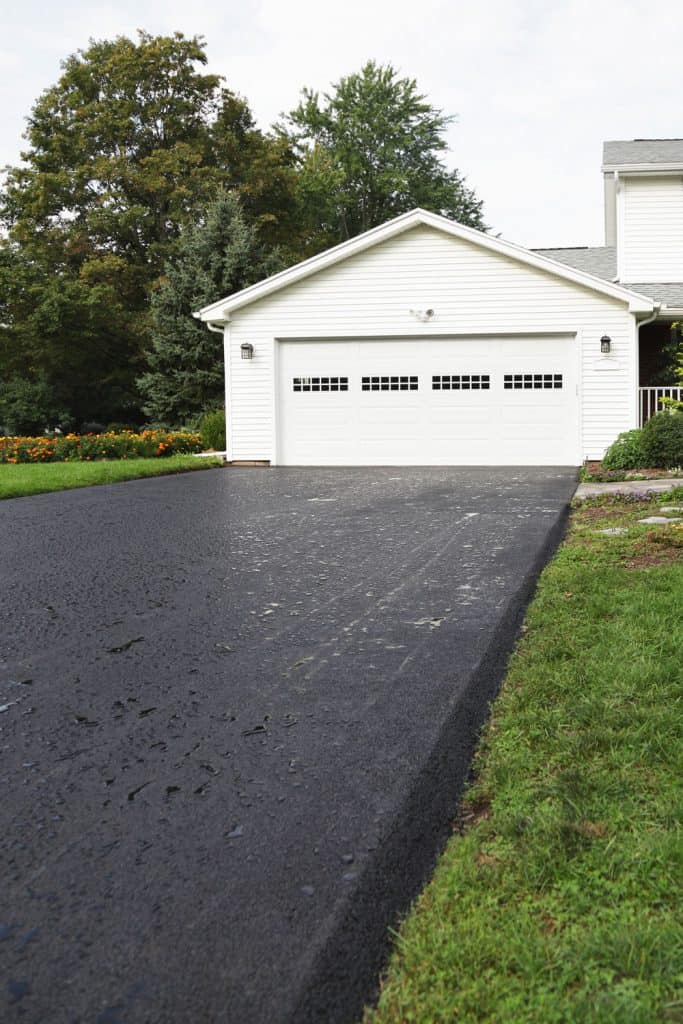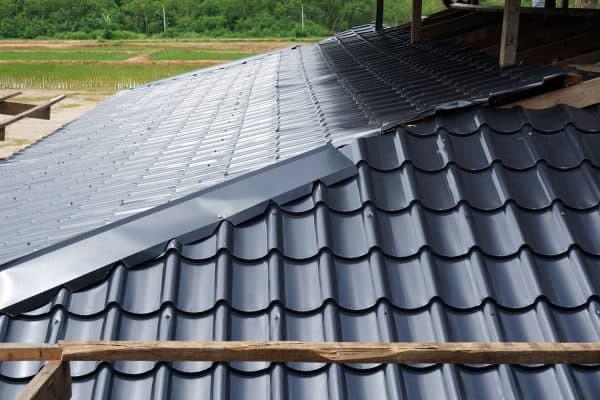Each spring, homeowners survey their driveways looking at the cracks and small potholes, wondering if this driveway is good for one more season. But why wait when a new asphalt driveway can be laid in a day? The driveway is ready for use as soon as the asphalt cools, so how long will it last beyond that? We've researched the durability of asphalt driveways to get an answer for you.
A new asphalt driveway should last on average 17.68 years, according to a 2018 study by the engineers at Auburn University's National Center for Asphalt Technology. This study was done on highway roads, so a driveway, which gets less use, may last closer to the high end of 28 years. This research shows that an older asphalt surface may last on average 10 to 15 years. A concrete driveway can last 30 years as long as it does not crack.
Now that you know how long asphalt can last, let's discuss its cost and installation methods. We'll also compare asphalt to concrete so you can make the right choice for your environment and use of this surface. You might be surprised to learn that asphalt is a long-lasting, green product that can enhance your home.

Factors Affecting Driveway Longevity
Driveways have to be hard working. Some factors to consider when deciding on a new driveway are:
- What kind of winters are common in the area? Winters with lots of freezing and thawing can cause the soil beneath the driveway to rise and lower. A well-installed asphalt driveway will float on the base/subbase layer(s) without cracking.
- What size vehicles will be parked on the driveway? A sedan and pick-up weigh less than a motor home. The heavier the vehicles, the thicker the base/subbase layers will be.
- What kind of trees are near the driveway? Growing roots affect how the driveway is installed.
- How much rain is expected? Some asphalt types are permeable, so the water flows right through them, leaving a drier and less slick surface.
Does Asphalt or Concrete Last Longer?

We may include affiliate links and curated AI content to highlight top design styles.
Modern asphalts are designed to work with nature. They handle temperature changes well. In freezing and thawing winter climates, asphalt will float on the base/subbase level better than concrete, which tends to crack as it floats.
Concrete may have water drainage issues. The Asphalt Pavement Alliance describes one new asphalt which allows rainwater to permeate the surface to the soil below, allowing the surface to not become slick. This surface also requires less deicer salt or chemicals to prevent freezing than other surfaces like concrete.
When concrete needs to be replaced, it has to be removed in its entirety. New asphalt driveways are 100% recyclable. The Asphalt Pavement Alliance says, "Ninety-four percent of asphalt reclaimed from old roads and parking lots goes back into new pavements." Many asphalt companies can recycle old asphalt.
Though concrete lasts up to 30 years, this is dependent on it never cracking, which is rare to non-existent in winter climates. Asphalt is a better choice.
Do you have an unsightly splatter on your concrete surface? Don't replace it, first read "How to Remove Paint From Concrete? [5 Simple Steps]."
When Should I Replace My Asphalt Driveway?
An asphalt driveway should be replaced when the surface becomes too rough. An old driveway may have standing water which indicates the water isn't draining properly. The surface can have gravel stones appear as the cracks open to the base layer. The surface can break in parallel, alligator cracks, like the back of the reptile. These cracks can lead to pieces of the asphalt breaking off and making tripping hazards.
What is the Average Cost of Replacing an Asphalt Driveway?
The average cost of a new asphalt driveway is $7 to $13 per square foot. The price fluctuates on labor and other local construction costs. A 25-foot long driveway, 22-foot wide for two cars to be parked side by side, is 550 square feet. This would cost:
- $7 per sq.ft. = $3,850
- $10 per sq.ft. = $5,500
- $13 per sq.ft. = $7,150
How Often Do You Need to Seal an Asphalt Driveway?
When small cracks begin to appear, it may be helpful to seal coat the driveway, and for bigger cracks, use an asphalt overlay called thinlay on the driveway. In a place where the winter has lots of freezing and thawing, this will be more necessary. Seal coating is a thin liquid that coats and covers the driveway. It costs $300 to $500 for a contractor to seal coat an average driveway. Adding a thinlay coating will cost between $1,000 to $2,000 based on square footage and labor costs.
Installing Asphalt
DIY
Handy homeowners may consider installing the new asphalt driveway themselves, but this is a lot of work. One would need good friends who like sledgehammering to remove the old driveway, shoveling to level the soil, working a 3,000-pound twin drum roller to level, moving rock in wheelbarrows to lay the base layer, and then more wheelbarrow work to move the wet and hot, 250 to 350 degree, asphalt for lay the two layers. This is hard work!
Professional
An asphalt installing company will make a complicated process a one to two-day success. They will do the important work of preparing the ground or soil so that water drains well. They will make sure any tree roots are taken care of, which can crack driveways as the trees grow. The company may offer a week-long process which involves giving the base/subbase layer a week to settle, making a stronger driveway. In some areas, this is not necessary.
The asphalt installing company will not finish until the homeowner is satisfied with a new, long-lasting asphalt driveway.
The most important advantage to an asphalt installing company is experience. They do asphalt driveways every day, every week. Find a company with experience and check their references talking to homeowners who are parking on these driveways. It may be helpful to drive over and look at driveways done by the company in past years.
Driveway Installation Process
The asphalt installing company will come in, remove the old driveway, and haul it away. They will level the dirt, fixing any low spots or tree root issues. Next, they will add either a base or a base/subbase layer(s) for heavier loads. These layers are the most important layers, as they provide drainage and frost prevention.
The asphalt is laid in two layers. The first is the thicker binder layer which is a large aggregate mixed with oil. The second layer is smoother made of smaller aggregate, sand, and oil. It makes a smooth, shiny surface.
The last step is to smooth the transitional areas from new asphalt to older asphalt or concrete, ensuring good water runoff and smooth walking/driving surface seams.
Is Asphalt a Green Product?

Asphalt may be one of our greenest products. Though it is a petroleum byproduct, the carbon remains sealed in the asphalt since nothing is burned. Philanthropists Bill and Melinda Gates are investing in companies that are exploring whether asphalt can be a storage answer for carbon dioxide scrubbed from the atmosphere.
Summary
A new asphalt driveway can be installed in a day, is 100% recyclable, allows the rainwater to permeate right through it, and gives an average of 18 years of smooth driving. Check out these "21 Asphalt Driveway Ideas To Inspire You!"


![Get Your Roof Ready: How to Apply Aluminum Roof Coating [Step by Step Guide]](https://homedecorbliss.com/wp-content/uploads/2023/08/shutterstock_1624204837-600x400.jpg)
